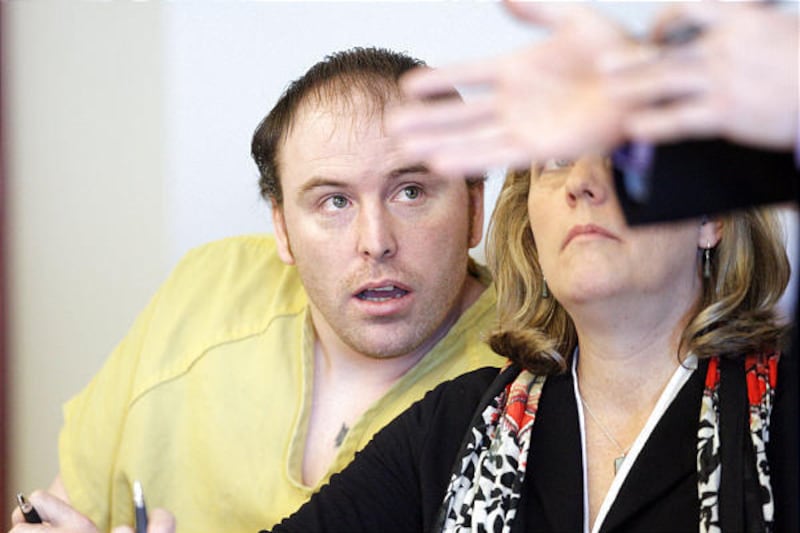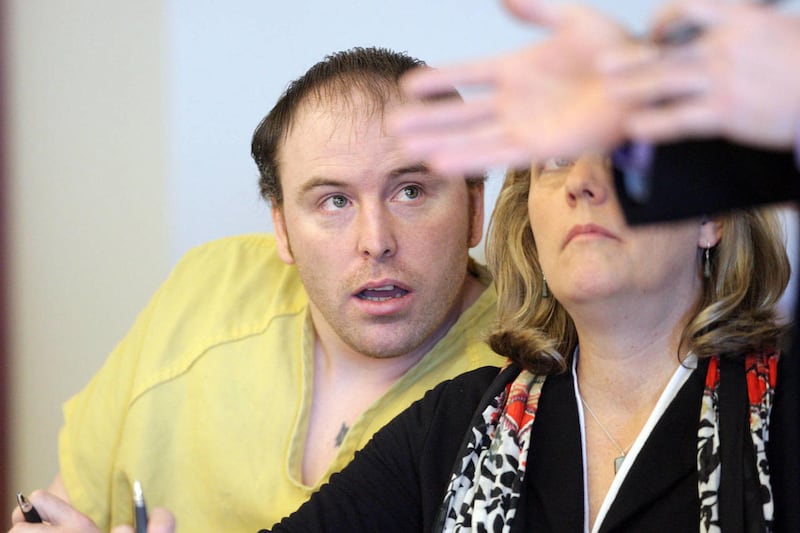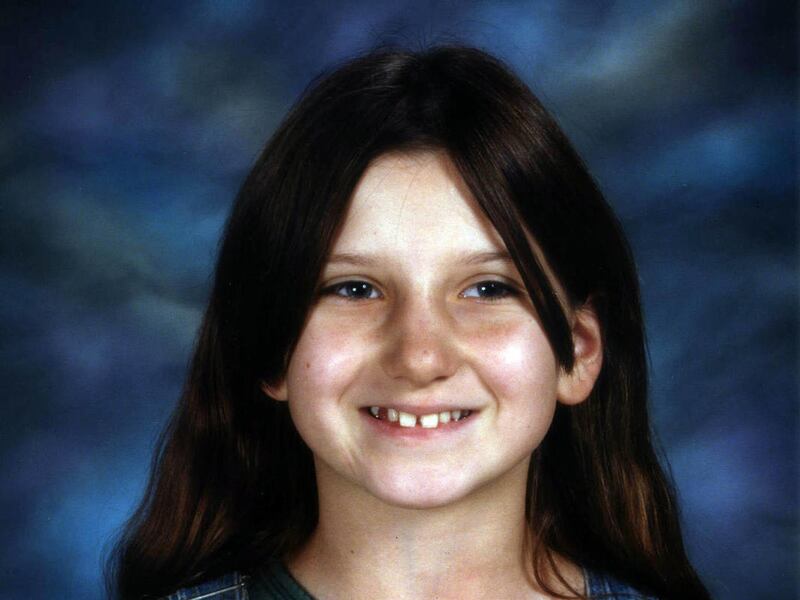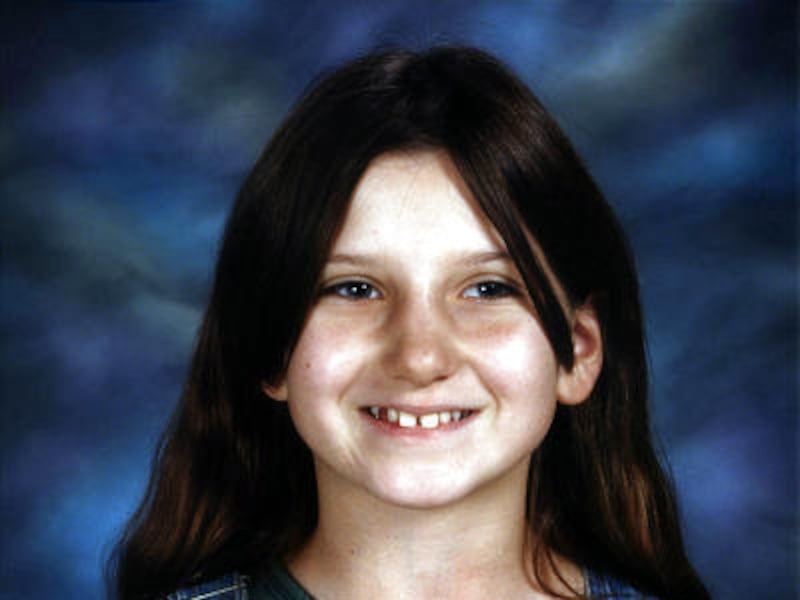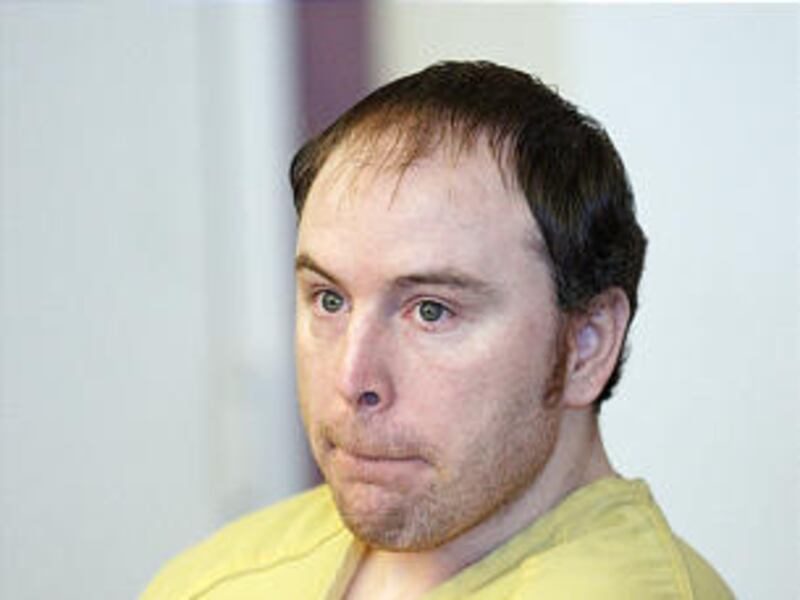SALT LAKE CITY — When 10-year-old Anna Palmer was killed in September 1998, it seemed as if one minute she was alive and the next she wasn't.
Neighborhood girls had seen Anna walking home from a friend's house just 15 or 30 minutes before her mother came home from work to find her dead on their own front porch.
It was clear what had killed her — she had been stabbed five times in the neck — but there was no clue as to who had done it.
And there wasn't for years.
On Friday, the man charged years later with her death — Matthew John Breck — pleaded guilty to aggravated murder, a first-degree felony, and was immediately sentenced to life in prison without the possibility of parole by 3rd District Judge Judith Atherton.
A month after Anna died, police and volunteers handed out fliers, incredulous that no one on busy 300 East had witnessed the slaying.
In 2009, DNA evidence led police to Breck, and charges were finally filed in 2010.
The girl's mother, Nancy Palmer, has rarely granted interviews but often thanked members of the public for their concern and expressed her wish to see the case resolved.
Outside the courtroom Friday, she thanked police and prosecutors who worked on the case.
"It's been a long time coming," Nancy Palmer said. "Hopefully now we can get past her death to the good things."
As difficult as it was to hear Breck admit to brutalizing her daughter, Palmer said she felt some peace in the finality of his sentence.
"It's good to know," she said. "Instead of thinking about it, wondering, now we have, at least, some answers. … The most important thing is that justice was done. (Breck) was held accountable and will be held for the rest of his life."
Palmer didn't speak to the judge Friday. Prosecutor Vince Meister said the family's thoughts were captured in a five-page letter that was given to Atherton, but he assured the judge they were "very satisfied" with the outcome.
"I think it's a good resolution," Meister said after the hearing. "It's a resolution (the family) was happy with. Since day one, they wanted to see that Matthew Breck would never get out and hurt another little girl."
In court hearings, Palmer has described her daughter — a girl with dark brown hair and a sweet smile — as a "little socialite," known to have a number of friends.
One of those friends, Veronica Porcayo, addressed the judge Friday.
Porcayo was Anna's best friend and had known the girl since they were in kindergarten. She described Anna as "very nice, outgoing, not a mean bone in her body."
Losing her friend at the age she did and in the way she did changed the way Porcayo viewed the world, she said, and led to her losing some of the hope she'd had. Some of that hope, she said, was restored Friday.
"It does not do us justice to not be able to see (Anna) laugh or smile or even to hear her cry," Porcayo said. "The only thing we ask is that justice now be done for Anna. She cannot be here today, but she will never be forgotten."
Anna's death went unsolved for years, quickly becoming one of Salt Lake City's most notorious cold cases. It wasn't until advances in DNA technology led to a breakthrough in the case, leading to charges against Breck, who was 19 and living in Anna's neighborhood at the time of the murder.
DNA recovered from under the girl's fingernails was matched to Breck, now 32, who had been in the Idaho Correctional Institution-Orofino, in Clearwater County, Idaho, since 2001, when he was convicted of sodomy/lewdness of a child under 16.
Breck was charged with aggravated murder, aggravated sex abuse of a child and child abuse in connection with Anna's death. Several witnesses placed him near the scene of the crime, and some neighborhood children said they saw someone following the girl on her walk home.
In exchange for Breck's guilty plea to aggravated murder, the other charges were dropped.
Defense attorney John West outlined what happened that September day nearly 13 years ago — how Breck caused Anna's death, how he beat her and repeatedly stabbed her and "detained the child" as he abused her.
"Is that what you did?" Atherton asked Breck.
"Yes," he replied.
Breck declined to say anything in court, though West said the man wrote a letter of apology to the Palmer family. Atherton told the family that three days of evidence she'd previously heard in the case was "exceptionally difficult to sit through."
The judge said she wanted to specifically address Nancy Palmer, who has sat through a number of court hearings.
"My heart goes out to you and your family," Atherton said. "I hope Mr. Breck's admission today … will be a step for you, in some small way, in starting the healing process."
Email: emorgan@desnews.com
Twitter: DNewsCrimeTeam

